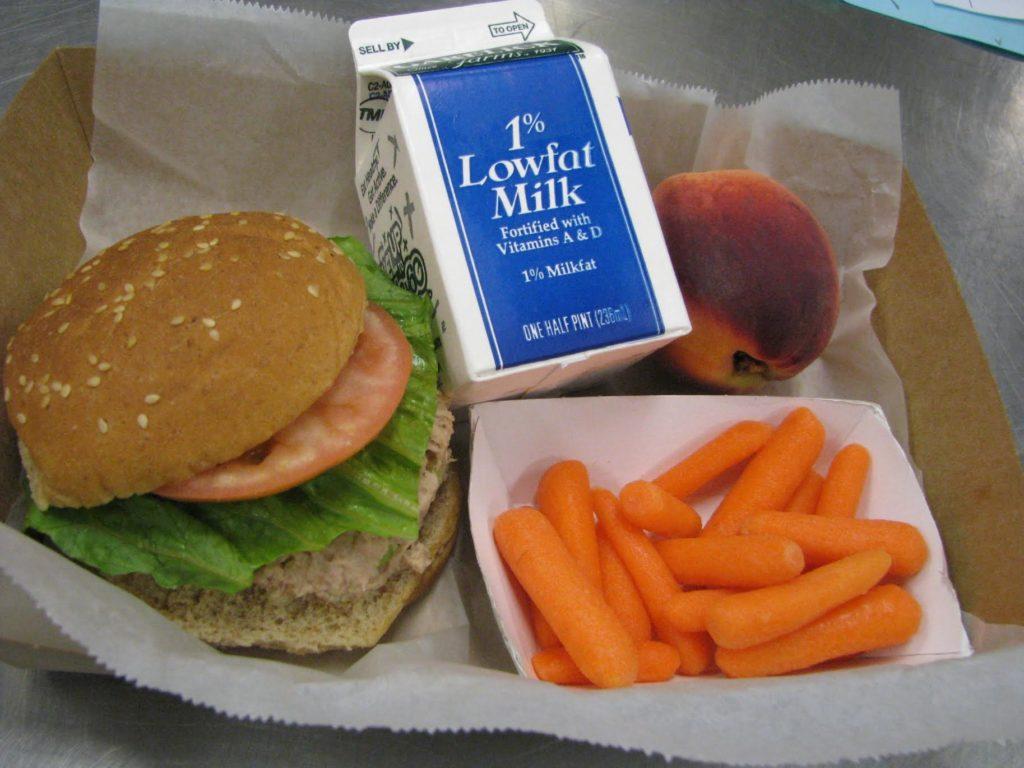By Laura Rosenberg, news correspondent
After facing a reported budget deficit of $2.3 million, Boston Public Schools (BPS) announced on March 9 that it will change the free breakfasts and lunches they offer to students to cut down on costs.
In lieu of hot breakfasts served daily, schools will serve cold breakfast options such as Cocoa Puffs and skim milk for breakfast. Hot breakfasts will be served twice a week, and daily lunch specials will be replaced with basic menus including items like cold cuts, peanut butter and jelly sandwiches, chicken fingers and macaroni and cheese.
Jessica Hoffman, Ph.D, an associate professor in the Department of Counseling and Applied Educational Psychology at Northeastern and a nationally certified school psychologist, said that the BPS’s current situation is an example of how underfunded the country’s school food service departments are.
Hoffman also works as a co-investigator at Healthy Kids, Healthy Futures, an obesity prevention program for preschool students in the Boston area. She has additionally served as the principal investigator for a five-year long research project funded by the National Institutes of Health, which examined different methods of encouraging elementary school students to consume fruits and vegetables within Boston Public Schools.
“School food service departments are charged with a very challenging and critically important task – how to serve nutritious foods that children will eat in a cost effective manner,” Hoffman said in an email to The News. “Without the financial resources needed to hire staff, have kitchen spaces to prepare foods and purchase quality ingredients, school districts are in a very difficult position to deliver healthful, tasty meals to millions of children each day. This is a very large, national problem that proper funding is needed to address.”
The National School Lunch Program (NSLP), a federally assisted meal program to provide nutritionally balanced, low-cost or free lunches to schoolchildren, was established under the National School Lunch Act in 1946. More recently, in December 2010, President Barack Obama signed the Healthy, Hunger Free Kids Act, which altered the nutritional standards for the National School Lunch and School Breakfast Programs to meet the dietary guidelines for Americans.
According to the US Department of Agriculture, 1,519 schools have dropped out of NSLP, citing small portion size and excessive regulation on the foods offered. These schools tended to have few students eligible for free or reduced lunch pricing.
NSLP is particularly important in low-income areas, where it offers free or reduced meal prices. In the BPS system, meals are free to students regardless of income.
The proposed changes to school lunches are not unique to Boston or even Massachusetts. Many states are now revising student meals.
Chelsea McGee, a former New York City resident and freshman criminal justice major, noticed a similar lack of variety in her high school.
“At my school, breakfast was free, but lunch was not,” McGee said. “We typically had hot and cold options – though, junior year, a majority of the items were things that were served every day like pizza and burgers. The daily entrées were limited at best.”
Emily DeLuca, an undeclared freshman and former Connecticut resident, experienced a different side of the spectrum.
“At my school, meals were not free and were on the expensive side,” DeLuca said. “The school offered both daily entrées that changed on a regular basis, as well as foods that were available every day.”
Despite this, DeLuca still felt limited as a vegetarian, and her diet reflected that.
“I ate almost the same thing at school each day: hummus and pretzels,” she said.
Whether or not their personal experiences reflected those of future BPS students, Northeastern students were distressed by the coming change. Leigh Schneider, a freshman undeclared student, expressed worry at the effect it would have on children.
“I am very concerned how these changes might impact the nutrition of kids – especially at a middle school and high school level,” Schneider said. “When it comes to cutting a budget, something that is so important to kids’ health, well-being and performance at school should not be at the top of the list.”
Photo courtesy Boston Public Schools.









